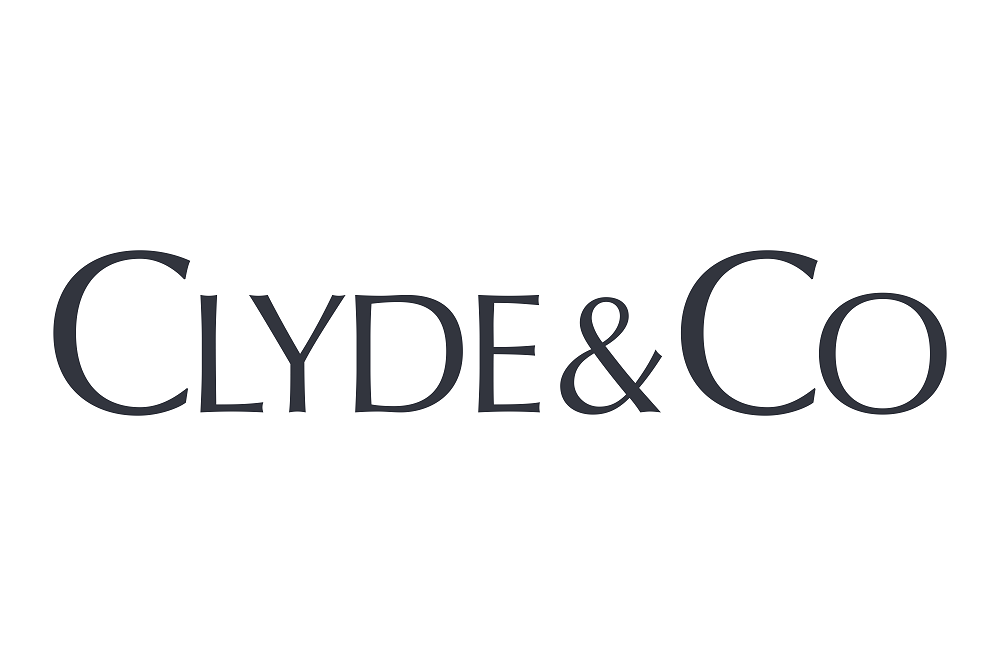This spring, Clyde & Co brought Charles Foucreault on as a new partner in their Montreal office. As a specialist on Quebec insurance legislation, Foucreault advises insurance carriers and brokers on key legislative changes and is a go-to resource for carriers, adjusters and third-party administrators.
Lexpert sat down with the new partner to put his expertise to the test and discuss the complexities of civil liability insurance in Quebec, and what he’s been keeping his eye on lately.
How is Quebec different from other provinces with regard to civil liability insurance? What are the benefits and drawbacks of the Duty to Defend?
Recent Articles
Quebec distinguishes itself from other jurisdictions in North America because legal costs and expenses resulting from actions against the insured are borne by the liability insurer over and above the limits of the insurance. This requirement has been in place for several decades, initially outlined in articles 2604, paragraph 1, and 2605 of the Civil Code of Lower Canada, and currently prescribed by articles 2500 and 2503 of the Civil Code of Quebec (“C.C.Q.”).
On June 2, 2021, the Quebec legislature introduced an amendment to article 2503 C.C.Q. This amendment, through a third paragraph, grants the government the authority to authorize certain categories of insurance contracts and classes of insureds to depart from the established rules in articles 2500 and 2503 C.C.Q.
On April 20, 2022, the legislature adopted the Regulation Respecting Categories of Insurance Contracts and Classes of Insurers That May Derogate From the Rules of Articles 2500 and 2503 of the Civil Code. This regulation identifies the specific entities and categories of insurance contracts that can derogate from the established rules of articles 2500 and 2503 C.C.Q.
The purpose of the Regulation was to address the difficulty for some businesses operating in specific economic activities to obtain insurance coverage. The Regulation provides a framework for these classes of insureds to depart from articles 2500 and 2503 C.C.Q. The Regulation's sections 1 and 2 outline these specific classes, with section 2 providing an additional requirement for the insureds listed therein. Indeed, those insureds must hold minimum total civil liability insurance coverage of $5,000,000 at the time of policy subscription.
Under section 1, the entities that may enter into insurance contracts that depart from the rules, regardless of their liability coverage amount in place, are the following:
- Drug manufacturers under the Act respecting prescription drug insurance;
To be recognized by the Minister of Health and Social Services, drug manufacturers must manufacture, produce, import or sell drugs under their own name or under a trademark.
- Legal persons, or one of their subsidiaries, established under the Act constituting Capital régional et coopératif Desjardins, the Act to establish Fondaction, le Fonds de développement de la Confédération des syndicats nationaux pour la coopération et l’emploi and the Act to establish the Fonds de solidarité des travailleurs du Québec (F.T.Q.);
Each of these statutes creates funds whose objectives are to invest in certain regions of Quebec or to finance projects focused on worker participation in economic activity.
- Directors, officers or trustees of any of these previous entities, even one not insured under a contract departing from articles 2500 and 2503 C.C.Q.
The language of the regulation suggests two possible interpretations for this class of insureds.
A narrow interpretation of this wording would result in only directors, officers, or trustees of a previously mentioned entity having the permission to benefit from coverage that departs from rules at articles 2500 and 2503 of the C.C.Q. However, taking a broader perspective would lead to the conclusion that any individual typically covered by a directors and officers liability insurance policy could potentially receive coverage that deviates from the rules outlined in the C.C.Q., with the understanding that these individuals may purchase liability coverage, even if the business in question chooses not to be insured.
Under section 2, the entities that may derogate, on the condition that their civil liability coverage totals at least $5,000,000, are the following:
- A “large business” for the purposes of the Act respecting the Quebec sales tax or a person related to a large business within the meaning of the Taxation Act;
For the purpose of the Regulation, a person may be recognized as a “large business” if its total taxable sales generated in Canada by a permanent establishment, including its exports and the taxable sales of its associated corporations, exceed $10,000,000 during the course of the most recently completed financial year preceding the time of the subscription of the insurance policy. It can also qualify as a “large business” if it belongs to a predefined list of certain types of financial institutions.
- A reporting issuer or a subsidiary thereof within the meaning of the Securities Act;
Broadly speaking, a reporting issuer is a legal person who has made a distribution of securities to the investing public.
- A foreign business corporation within the meaning of the Taxation Act or the Income Tax Act;
In short, a foreign business corporation can be considered as such if it is not a “personal corporation”, files a tax return in Canada, does not derive more than 10% of its gross income from the leasing or operation of a ship or aircraft and meets various criteria under the Taxation Act and the Income Tax Act with respect to its activities, property location, and financial or investment activities.
- A director, officer or trustee of any of these corporations, even one not insured under such a contract.
The same interpretive issues as those raised above apply to this category.
What are the benefits of derogation from articles 2500 and 2503?
As mentioned above, articles 2500 and 2503 C.C.Q. provide that defense costs must be paid by the liability insurer over and above the total amount of the insurance. This has led to some difficulties for Quebec businesses to secure insurance coverage, especially in financial lines, at competitive rates. By allowing defense costs to erode the amount of insurance, insurers can consider charging lower premiums to policyholders in the province.
The ability to derogate, under certain conditions, from the rules of articles 2500 and 2503 C.C.Q. was therefore considered by the legislator as a remedy to this disadvantage and as an incentive to maintain and attract businesses in Quebec.
The insured's eligibility to depart from articles 2500 and 2503 C.C.Q is assessed at the "time of subscription". Moreover, the insured must also meet the requirements of sections 1 and 2 at the time of renewal of the policy, if applicable. It is therefore essential to understand what that "time of subscription" is.
From our standpoint, the "time of subscription" should be understood as the time of the acceptance by the insurer of the insured' application for insurance. This interpretation is, in our view, the most consistent with the principles of Quebec civil law.
Sections 3, 4 and 5 of the Regulation outline the situations where an insured is ineligible for insurance coverage that derogates from articles 2500 and 2503 C.C.Q. These situations are as follows :
- Any coverage for the liability of directors, officers or trustees for their activities as a member of a pension committee;
- When the law provides for a minimum amount of civil liability insurance coverage for a certain type of insured (for example, professional orders).
- Any contract of insurance with a policy period of more than one (1) year.
The Regulation does not address the consequences of parties entering into an insurance contract that derogates from the rules of articles 2500 and 2503 C.C.Q. when the insured did not qualify for derogation at the time of subscription. If an insurer issues a liability insurance policy that departs from the rules of articles 2500 and 2503 C.C.Q. without meeting the necessary criteria due to its misapplication or misinterpretation of the information received from the client, our view is that the departure would simply not be valid. However, the non-qualification of the insured may result in a significant financial burden for the insurer since a policy that would derogate would typically be issued with a lower premium and the insurer would still need to bear any defense costs incurred by the insured over and above policy limits.
What other insurance questions are on your radar?
On May 24, 2022, the National Assembly of Quebec passed Bill 96, known as An Act respecting French, the official and common language of Québec, which introduces significant changes to the Charter of the French Language (the “Charter”).
Effective from June 1, 2023, an amendment to article 55 of the Charter requires contracts of adhesion, which are agreements where one party imposes language on key elements of the contract to another, to be drafted in French and remitted to the adhering party before it can expressly request to be bound by the English version of the agreement. Insurance contracts often fall into the category of contracts of adhesion, as they are primarily drafted by the insurer with limited input from the insured.
In practical terms, only after the insured party receives the French version of the application, policy, and endorsements and provides express written consent to be bound by the English version, can subsequent communications and contractual documents be issued in English. Failure to comply with these requirements may render the policy unenforceable against the insured.
Consequently, contractual clauses commonly found in insurance policies stating that the parties agree to be bound by a contract written in another language are no longer sufficient. There are some exceptions to these new obligations, particularly for insurance products that have no French equivalent in Quebec and either come from outside the province or are not widely used in Quebec. However, because these exceptions are very specific, they may have very limited application and could apply only to very specialized insurance products.
***
Charles Foucreault
 Charles practises civil and commercial litigation, specializing in professional liability, municipal liability, general liability, class actions, defence, coverage and regulatory work in the province of Quebec. He has a particular focus on property and construction law, directors and officers’ liability, errors and omissions insurance, and cyber risk.
Charles practises civil and commercial litigation, specializing in professional liability, municipal liability, general liability, class actions, defence, coverage and regulatory work in the province of Quebec. He has a particular focus on property and construction law, directors and officers’ liability, errors and omissions insurance, and cyber risk.
See the list of the top-ranked professional liability lawyer in Canada in this directory.





